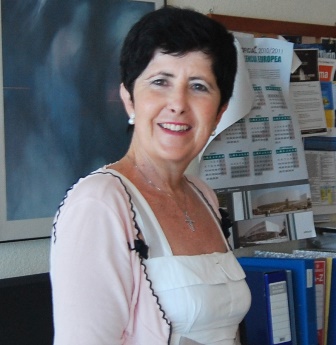
Scientific coordinator
Address info: University of Malaga, Biomedical Research Institute of Malaga (IBIMA Plataforma Bionand).
M. Isabel Lucena is Professor of Pharmacology at the University of Malaga and Director of the Clinical Pharmacology Service at the University Hospital of Malaga. Scientific coordinator of SCReN, Platform of Clinical research and clinical trials at IBIMA (2013-). Former Scientific Director of IBIMA (Malaga Health Research Institute) (2013-2017). She belongs to CIBERehd group on DILI granted by the Spanish Ministry of Health and to the European Network of Centres for Pharmacoepidemiology and Pharmacovigilance (ENCePP). Expert of the AEMPS and the European Medicines Agency for the evaluation of liver safety of drugs. Member of the Executive Committee of the International Union of Basic and Clinical Pharmacology. Rapporteur of CIOMS working Group on Drug-Induced Liver Injury (DILI). Member of the expert panel of the European Association for the Study of the Liver Clinical Practice Guidelines on Occupational Liver Diseases. Funder and coordinator of the Spanish DILI Registry (www.spanishdili.uma.es) and of the Spanish Latin-American DILI Network and the recent set-up Prospective European DILI Registry awarded by EASL. Scientific coordinator of the Cost Action 17112 Pro Euro DILI NET (https://proeurodilinet.eu/). International collaborations: partners in the IMI Safer and Faster Evidence Based Translation consortium (SAFE-T, 2008-2015), the International Serious Adverse Event Consortium (iSAEC), IMI2 TRANSBIOLINE project (2019-), Eurostars Programme: Novel Combo Assay for Early Detection of DILI (E!114589-LiverAce. 2021-) and leading the COST Action 17112 Prospective European Drug-Induced Liver Injury Network (https://proeurodilinet.eu). HALT-RONIN PI WP5 European Horizon´s research and innovation programme HORIZON-HLTH-2022-STAYHLTH-02 (2022-2026). The main lines of research in DILI are pharmacoepidemiology, identification of risk factors and patient stratification, genetic, OMIC and immunophenotyping studies in order to improve the mechanistic understanding of DILI and the qualification of novel biomarkers and their transfer into clinical practice. She has an H-index of 49.